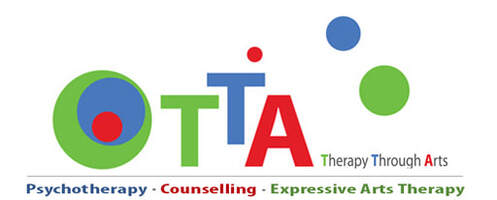TTA Psychotherapist
Ellen Eun Young Yang PH.D(c), RCC, RCC-ACS, RCS, REAT
Specialized in emotional/ behavioral challenges,
cognitive/physical difficulties, and community wellness programs
Therapist, Educator, and Consultant
cognitive/physical difficulties, and community wellness programs
Therapist, Educator, and Consultant
Ellen is not only a Registered Clinical Counsellor (RCC) but also a Registered Expressive Arts Therapist (REAT) specialized in emotional/behavioural challenges, cognitive/physical difficulties, and autism. Currently, she works with the PALS Autism Society and runs a private practice in the Vancouver area. (teletherapy and in-person therapy)
"With over 25 years of experience in the education and mental health field, I am here to help you build the tools for coping with life’s difficulties and to help you achieve your full potential. I use holistic, humanistic, and strength-based methods. I also provide an integrated and interdisciplinary creative approach to counselling and somatic psychotherapy. I truly believe each person is a unique whole being influencing and being influenced by external and internal elements in life. And we all deserve to be seen and heard and to find ways to maximize the joy in your life!" - Ellen Yang
Specialize in: (1) stress, anxiety, depression, trauma, grief, or low self-esteem. (2) autism and other developmental differences. (3) emotional support and changing undesirable behaviours. (4) self-growth, empowerment, and wellbeing. (5) clinical supervision.
Main approaches: Client-Centered, Strength-Based, Somatic Psychotherapy, Trauma-Informed Therapy, Expressive Arts Therapy, Play Therapy, Integrative Somatic Parts Work (Internal Family System), and Mindfulness.
"With over 25 years of experience in the education and mental health field, I am here to help you build the tools for coping with life’s difficulties and to help you achieve your full potential. I use holistic, humanistic, and strength-based methods. I also provide an integrated and interdisciplinary creative approach to counselling and somatic psychotherapy. I truly believe each person is a unique whole being influencing and being influenced by external and internal elements in life. And we all deserve to be seen and heard and to find ways to maximize the joy in your life!" - Ellen Yang
Specialize in: (1) stress, anxiety, depression, trauma, grief, or low self-esteem. (2) autism and other developmental differences. (3) emotional support and changing undesirable behaviours. (4) self-growth, empowerment, and wellbeing. (5) clinical supervision.
Main approaches: Client-Centered, Strength-Based, Somatic Psychotherapy, Trauma-Informed Therapy, Expressive Arts Therapy, Play Therapy, Integrative Somatic Parts Work (Internal Family System), and Mindfulness.
|
Certifications & Licenses
RCC-Approved Clinical Supervisor (RCC-ACS #19029) Registered Clinical Counsellor (RCC #19029) Registered Counselling Supervisor (RCS # 2359) Registered Expressive Arts Therapist (REAT # 1808) Master Therapeutic Counsellor (MTC, 2017 to 2021) Registered Therapeutic Counsellor (RTC, 2017 to 2021) BC Certified Teacher (Ministry of Education, 2010 to 2022) Certificate in Prevention and Treatment of Problem Behavior (ACT) Certificate in Intensive Teaching & Natural Environment Teaching (ABA) Certificate in Pranic Healing (IIS) |
Work Experience
Over 25 years in education and mental health Supervisor/Instructor at Winnipeg Holistic Expressive Arts Therapy Institute Individual and Group Supervisions for mental heath practitioners Community Workshops (Well-being, Empowerment, Leadership) Vancouver Private Practice (Teletherapy and In-person therapy) PALS Autism Adult Program (Individual Sessions for autistic adults) Surrey Elementary Schools (Creative U Program, 2014 to 2022) Musqueam Indian Band (Girls & Community Seminars, 2017 to 2022) PALS Autism School (Group Sessions for autistic children, 2008 to 2016) |
Expressive Arts Therapy
Expressive arts therapy (ExA) is an integrative and interdisciplinary arts-based approach to counselling and psychotherapy. It emphasizes artistic experience as a tool for self-discovery and self-expression, for the integration of physical, mental, social and emotional well-being, and for building community. ExA is defined as the use of art, music, drama, dance/movement, poetry/creative writing, play and sand play within the context of psychotherapy, counselling, rehabilitation or medicine.
Expressive arts therapy can help people to:
Who can benefit from expressive arts therapy?
Expressive arts therapy can be applied in a broad range of settings and to a variety of people and their challenges. Also, everyone can benefit from experiencing expressive arts therapy including individuals interested in personal growth, individuals with mental health issues, the elderly, children with developmental disorders and their parents, victims of abuse and those with terminal illnesses. They all have the ability and the right to access new experiences through different modalities and mediums (art, music, writing, movement, drama, etc.) to break down emotional blockages. ExA therapists work in many different environments: they may work in private practice with individuals and groups, in hospitals and agencies that focus on mental health, in shelters for women and children, in retirement homes, in hospice care and in schools.
Expressive arts therapy (ExA) is an integrative and interdisciplinary arts-based approach to counselling and psychotherapy. It emphasizes artistic experience as a tool for self-discovery and self-expression, for the integration of physical, mental, social and emotional well-being, and for building community. ExA is defined as the use of art, music, drama, dance/movement, poetry/creative writing, play and sand play within the context of psychotherapy, counselling, rehabilitation or medicine.
Expressive arts therapy can help people to:
- Feel refreshed, joyful, and relaxed
- Access the healing power of their imagination and creativity
- Find resolution and new “tool-sets” to deal with and release painful emotions
- Change their habitual thinking and behaviour
- Increase their ability to live with complexity and gain new insights into the problems
- Tap into their most resilient self
Who can benefit from expressive arts therapy?
Expressive arts therapy can be applied in a broad range of settings and to a variety of people and their challenges. Also, everyone can benefit from experiencing expressive arts therapy including individuals interested in personal growth, individuals with mental health issues, the elderly, children with developmental disorders and their parents, victims of abuse and those with terminal illnesses. They all have the ability and the right to access new experiences through different modalities and mediums (art, music, writing, movement, drama, etc.) to break down emotional blockages. ExA therapists work in many different environments: they may work in private practice with individuals and groups, in hospitals and agencies that focus on mental health, in shelters for women and children, in retirement homes, in hospice care and in schools.

